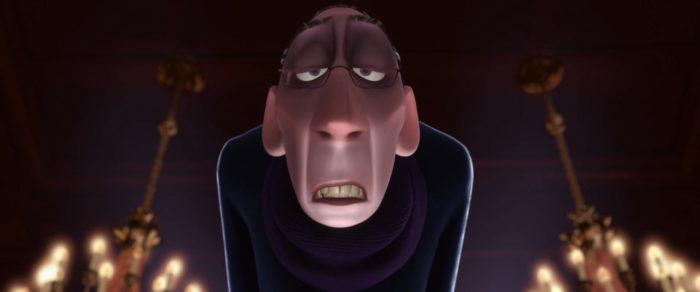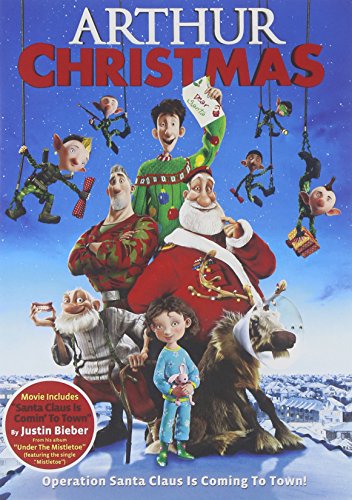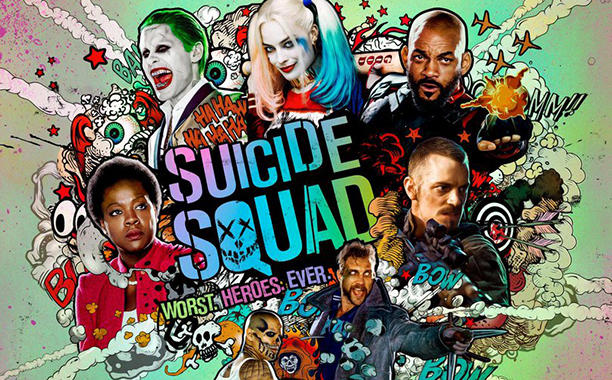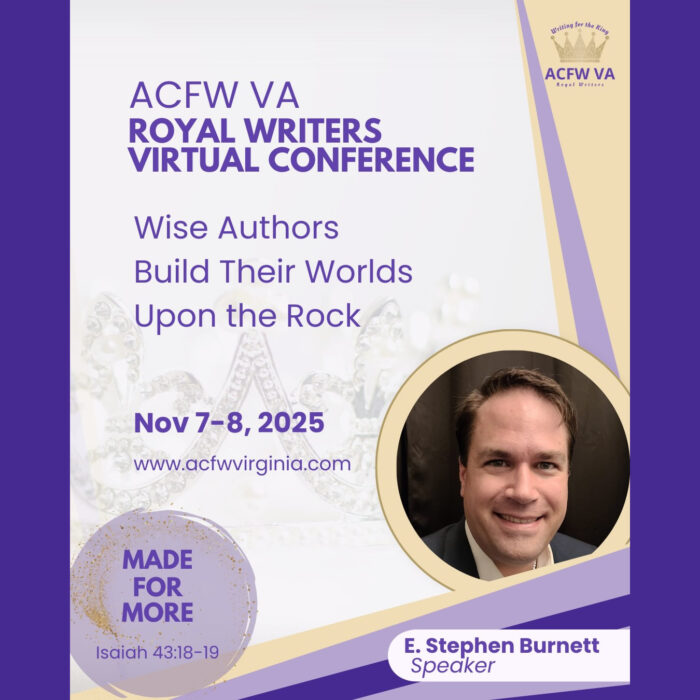Everyone’s a Critic: A Response to Criticism of My Criticism of Critics
Sometimes the best part of web writing really is the critics in the comments section.
I’m not being sarcastic or passive-aggressive. Perhaps I’ve simply been privileged to encounter some of the best comments sections I’ve ever seen. I’ve met great, long-range friends in lengthy exchanges hosted by Speculative Faith, Facebook friends, Facebook “enemies,” or ministry pages.
One of those friends is Jared Wheeler. I don’t always remember a friendship source, but I remember this one. We became (Facebook) friends after my article on Christ and Pop Culture about the Legend of Korra animated series finale.1 Jared took umbrage with much of what I wrote, and away we went.
Some of that’s to be expected. CAPC articles go through an editing process, thanks to a fine team of word-sharpeners. Still, and perhaps due solely to the writer, any article can leave plenty of openings, potential misunderstandings, and of course, plain poor arguments. How much more so a story on a personal site like this one.
More recently, Jared also took friendly issue with my Monday micro-rant. In “A Movie Is Much More Than the Pop Song They Stuck in There,” I suggested “critics” (my often-undefined term) pay more attention to movie pop songs than to the films’ central stories and soundtracks. He believes I fired indiscriminately based solely on my own feelings. Also he felt his feedback went on overlong. If so, I’ll double that offer by copying it here, and hoping to let him sharpen me.
Why I fight to delight (even in some movies critics pillage)
Truly, though, it does feel like your ongoing criticism of criticism is veering ever further into purely petty griping. This is *pretty* deep in “I’m not going to be happy until you all enjoy the movies I do, for the reasons I do, in the way that I do” territory.
A small, snarky side of me would suggest the statement “I’m not going to be happy until you all enjoy the movies I do, for the reasons I do, in the way that I do” describes a fair chunk of film criticism. Not all, but some.
Here then, my weakest defense is that I’m simply following the rules.
But I hope that’s not how I come across.
Rather, I hope to articulate at least throughout a full body of work that I’m pursuing happiness by enjoying as many stories as I’m able. Here I mean “happiness” in the biblical sense. In short, I believe God allows story-making, even in this nasty world, as a reflection of his common grace. It also reminds us of God’s original purpose for humanity: to imitate and glorify God by making new things in the world he gave. And in so doing, we find perfect happiness, not solely in the stuff, but in the Giver.
If a story or other human cultural expression doesn’t give me this kind of happiness, I might say so. More likely, I’ll ignore the story.
But I concede that I can sound fairly negative when I don’t believe pop culture critics share my values. If I believe someone could be affected by a plain ol’ trend, I might say so. If someone seems to jump on a bandwagon for/against a story because of a “horse race” mindset, I might point this out. It doesn’t mean I despise that person or think “they’re not in favor of happiness like I am.” At worst, I’d say: Here’s another example of the fact that human beings have all kinds of snarled-up impulses within us, along with our God-given desire to be happy.
I have these same snarled-up impulses.
This is why I’ve been cutting back on watching acid-tongued movie reviews from YouTube critics. Their cynicism is often paired with some astute observations about story and filmmaking craft. Still, I’ve found that I can catch cynicism more easily than a two-year-old catches colds at day care. The treatment’s side effect? I may come off as very cynical against cynicism (real or imagined) from movie critics.

An essay on criticism
By the way, when I say “critic,” I don’t mean some major newspaper movie-watcher in a loft apartment somewhere. I think of anyone who styles him– or herself a critic. When I use the word, I’m thinking of mainstream media critics, the sorts who attend film festivals, yes. But I also think of geekbait “fandom” websites or YouTube channel hosts. Many of these have legitimate heartfelt opinions. Yet I’m sure others’ “opinions” are in fact incentivized, so they over-praise or rudely despise the latest flick (like Ghostbusters 2016 or Star Wars: The Last Jedi). And I think of any person who, as we all can be, may be tempted to follow after popularity trends.
“Ever read a movie review or comment that draws too much attention to a pop song the moviemakers stuck in there?” No. I haven’t. It might have helped if you had included some examples of this happening to validate your point . . . I’m not convinced that this is even a thing.
It’s a thing. But fair point—more examples would have helped. In this case, however, that would be like trying to track the source of a “meme.” And in fact, a “meme” (in Richard Dawkins’ original use) might actually be what I’m opposing here.
“If I’m right, perhaps this is just another example of some critics blindly trying to feel their way along these (very popular) genre offerings. After all, if you get lost among all the –Women and Captains and –Men that “geeks” can identify but you cannot, never fear. The movie might at least have a familiar pop song you can praise or scoff about!”
This is completely baseless. You’ve started with a false premise and you’re tracking it in a direction that doesn’t show any particular grasp or knowledge of how film critics do their job [. . .]
I’m perplexed by this fierce defense of professional film critics. I am not a pessimist and I believe God actively permits common grace in the world, including professional film criticism. But I also can’t share this level of enthusiasm for major media or human culture (under the Fall). Of course, many critics are fantastic professionals. Others are fairly terrible at their job. (At least one of them writes for the newsmagazine National Review. I shan’t malign him here.) Still, none of what I wrote was an attack on critics or their professionalism.
Even that response presumes a narrower “professional film critic” definition, although I don’t presume this.
I do contend for two first principles, which I’d left unspoken, in my original Monday story:
- My definition of “critic” includes many groups. Everyone’s a critic. Not just “professionals.”
- As a Christian, I do presume my priorities aren’t always the same as critics in a general audience.
[. . . ] so you end up in a place that is just pure fantasy . . . Again, if there’s a point worth making here (convince me), you should be grounding this in responding to real-life quotes that you cite, just as a start. (I have a VERY strong suspicion that, to the extent that this thing you’re talking about exists *at all*, you’re conflating shallow revenue-driven click-bait entertainment “journalism” with serious film criticism.)
For that last part, I could have closed this opening. I could have defined what I meant by “critic.” This clarity would have also specified that I actually meant, in part, to critique clickbait-type nonsense, including fans’ praise or criticism that I feel treads in shallow waters. And I feel comfortable doing this in a popular culture area with which I’m fairly familiar (superhero movies and soundtracks).
Guardians of the movie music?
“People went nuts over the simple fact that [Guardians of the Galaxy] has oldie pop songs in it!!!”
This is your one really salient, relevant example, and there are two things going on here that I want to point out:
1) Coming from you, this bafflement that people love a thing that they feel a strong emotional attachment to is . . . baffling. This piece is littered with hints at the fact that you understand the incredible deep and powerful connection people (including you) feel with music, both music in general and the specific songs or pieces that they have loved, often for decades. Like, if a movie critic wryly noted fan excitement over the tease of a beloved character in a Marvel post-credits scene, you’d be grossly offended . . . but you’re flabbergasted that it made people happy to hear a song that they loved. AND you think they’re enjoying the movie wrong because they enjoyed that.
Up until those last objections, I was tracking with you. But no, I wouldn’t be “grossly offended” by such a note about fan excitement. Nor would I claim that folks who like hearing a nostalgic song are “enjoying the movie wrong.” In fact, that’s a sort of binary “fresh/rotten [for everyone?]” approach to movies that I want to oppose in anything I write about human stories.
 Also of note here is the fact that it’s not critics (pro or casual) but movie-makers often drive this attention to the pop song they stuck in there, at the exclusion of the movie’s other qualities. Another fairly recent example comes to mind: the Aardman holiday film Arthur Christmas. This is a popular-level, comedic animated exploration of the Santa legend. It has surprisingly heartfelt exploration about different people’s approaches to the holiday and gift-giving. And its distributor Sony chose to … hype mainly the film’s end-credits holiday song by Justin Bieber.
Also of note here is the fact that it’s not critics (pro or casual) but movie-makers often drive this attention to the pop song they stuck in there, at the exclusion of the movie’s other qualities. Another fairly recent example comes to mind: the Aardman holiday film Arthur Christmas. This is a popular-level, comedic animated exploration of the Santa legend. It has surprisingly heartfelt exploration about different people’s approaches to the holiday and gift-giving. And its distributor Sony chose to … hype mainly the film’s end-credits holiday song by Justin Bieber.
I’ve read fans who said that, thanks to the marketing, the Justin Bieber song was all they knew about this movie (which did not do well in theaters). Only later did they actually saw the film and find delight in its comedic and dramatic genius.
2) “Crazy characters and surprising heart drove that movie. Pop songs only gave audible seasoning—which the filmmakers bought and paid for based on simple knowledge of what oldie songs had already gotten popular among mass audiences.” Dude. No. Those songs communicate *everything* about the movie’s central character, who he is, where he comes from, and what he’s all about, and they are precisely deployed throughout the movie in a way that is spectacularly skillful at subtly reinforcing the mood and theme of each scene. That soundtrack, and specifically the fact that it is composed of pop songs, and the specific pop songs it is composed of, is the backbone of that entire movie. The fact that this was highlighted by critics while you more or less shrug it off is . . . exactly why THEY are the ones who are good at their jobs.
On this I mostly agree. To be sure, director James Gunn interwove these songs with the story and its aesthetic. I should have noted this artistry as praised by the professional critics. (Whether the second Guardians film did this as effectively is another matter.)
Again, however, I’m not sure that casual critics or fans, who simply reacted based on “I know that song!” would make those connections. I wouldn’t nitpick on these folks for their personal preferences. But I would note that, again, these songs (with licenses bought and paid) are very well-chosen parts of a cohesive whole. (Fortunately, I think most Guardians pro-critic reviewers understood this well.)
 The better “worst” example is the one I cite immediately afterward: the dreadful Suicide Squad (2016). This villainous entry simply pasted pop hits, from multiple genres, over top of an already fragmented and near-nihilistic story. Also, I could have gone into detail about evangelical movies that overemphasize pop songs. But I felt I’ve picked on Christian movies a lot lately and wanted to leave that criticism more generalized.
The better “worst” example is the one I cite immediately afterward: the dreadful Suicide Squad (2016). This villainous entry simply pasted pop hits, from multiple genres, over top of an already fragmented and near-nihilistic story. Also, I could have gone into detail about evangelical movies that overemphasize pop songs. But I felt I’ve picked on Christian movies a lot lately and wanted to leave that criticism more generalized.
I love film scores. That was the music I bought until I stopped buying CDs, and there was a long period of my life when “movie soundtracks” was my response to “What kind of music do you listen to?” A good film score is incredibly important, and often the use of pop music (or even just rigidly contemporary styles of instrumental music) in a film will render it dated within a few years. I don’t think the Star Wars franchise would exist if Lucas had backed the original movie with hit disco tracks instead of insisting on a full orchestral score by John Williams.
Amen. I also believe I’ve come down from my “I only listen to soundtracks” cage-stage. Instead, I’m trying to appreciate other folks’ diverse musical preferences. In my original story, I observed that I tend to prefer music you can “story” to. Others prefer music you can party to. That comparison has helped to clarify why people like different music genres.
But everything you’re complaining about here, and the whole way you’re complaining about it, is just so . . . ick.
Here’s hoping this response helps flesh out that original micro-rant.
I don’t intend my stories here, or comments on apparent trends, as wholesale rejection of Professional Film Criticism.
On occasion, of course I’ll do the 1960s thing and “question authority.” I don’t do this to be outrageous or contrarian. Rather, it’s because I don’t believe I share priorities with a lot of critics. Instead, I share my part of a conversation, as if over fast-casual food with a friend. Or enemy. Or frenemy. I hope I’ll always invite any of these to push back as part of the continuing dialogue. After all, no one is above criticism: not casual critics, pro critics, or myself.
- To recap: the brilliant creators of Avatar: The Last Airbender “juked” their sequel series, The Legend of Korra, in favor of the Sexualityism cause. ↩














Thanks for this! I enjoyed reading it, and I appreciated hearing you elaborate further on what you meant. As always, we agree about many fundamental things . . . for instance:
“Rather, I hope to articulate at least throughout a full body of work that I’m pursuing happiness by enjoying as many stories as I’m able.”
Amen to this!
“This is why I’ve been cutting back on watching acid-tongued movie reviews from YouTube critics. Their cynicism is often paired with some astute observations about story and filmmaking craft.”
And this! I do highly recommend finding video essays and/or podcasts that celebrate the films they feature. I get so much more of that latter thing you’re looking for out of those. I think I can categorically state that, when it comes to art, people are often more insightful in guiding us through what they’re passionate about than in trashing what they hate. There is an important place for negative film criticism, but the YouTube genre you’re describing often feels more like a bandwagon pile-on (if it’s a recent film), even when the observations are very intelligent (though they often aren’t).
“By the way, when I say “critic,” I don’t mean some major newspaper movie-watcher in a loft apartment somewhere. I think of anyone who styles him– or herself a critic.”
This is obviously the biggest source of my misunderstanding . . . I’ve taken film classes at an undergrad and grad level, taught a film class, and I’ve been writing about film for 15 years on my own movie site and other sites. I’ve presented papers about films at academic conferences and even recorded several episodes of a movie podcast. . . . But I’m not “a critic.” And I’m not trying to foster a sense of snobby elitism about film criticism when I say that. I don’t believe that opinions of professional film critics are more valid or important or “legitimate” than my opinion. Nothing like that.
It’s just that when people make (usually negative) generalizations about “critics,” it’s bad enough that they think they can lump such a diverse, divergent group into something that homogeneous, but at least we know who they mean . . . The relatively small group of people who review films on a professional basis. If by “critic” you mean literally any rando with an opinion and a keyboard, then you’re speaking so broadly about such a vast group that I’m not sure there’s anything meaningful that could be accurately expressed. It’d be like discussing “trends in academia” (already a broad category) and then noting, “and by academia I of course mean anyone who has ever attended a college or university.”
I would add also that it’s bad enough to say “critic” when you mean “anyone who has an opinion about movies online,” but it’s even worse if you’re also lumping in clickbait entertainment sites like ScreenRant or Comic Book Resources that wallow in irrelevant, silly minutiae and don’t even engage in any real criticism. For example:
https://twitter.com/FilmClickbait/status/1083099260743168000
https://twitter.com/FilmClickbait/status/1082422469737103360
https://twitter.com/FilmClickbait/status/1082432746025246721
https://twitter.com/FilmClickbait/status/1084580174186737665
https://twitter.com/FilmClickbait/status/1083517781776068609
Of course, this is (I think) *exactly* the kind of shallow missing the point that you were decrying in your original post. AND I AGREE. But to me, real critics doing good film criticism are the antidote to this stuff. THOSE people are “critics,” not these other guys. You’re talking like those congressmen in superhero stories who are always trying to regulate all superpowers rather than differentiating between supervillains and superheroes and supporting the latter. “Critics” aren’t the problem, or the cause of it.
“I’m perplexed by this fierce defense of professional film critics.”
The fierceness of my reaction is almost certainly more about me than about you . . . I do have a pet peeve about people trashing film critics for, essentially, not fawning on the movies that they love. Of course, in this case that wasn’t what you were doing because you weren’t even talking about critics as I understand the term, but that’s what it looked like!
That said, certainly there are critics who are terrible. I have no idea which of us reads more film criticism (I read *far* less than I did a few years ago) or who your favorite critics are whose opinions you follow and how that list compares to mine . . . I just feel that in the past you have attributed nefarious ulterior motives to critics without any basis for doing so, or accused them (as a group) of something you grumpily suspected but had no real evidence for, largely because they didn’t praise a movie that you found praiseworthy. This felt like more of that.
Side note about professional criticism: The critic for the National Review is quite terrible, far more so now than in the past . . . However, I used to read him semi-regularly during his New York Press days because, even though I don’t think I agreed with him even one time, he’s a good writer and he’s smart as heck, and that made his insights worth reading. I feel like we fanboys often don’t have enough appreciation for *smart* criticism of the things we love. I can still remember how offended I was at Roger Ebert’s review of The Return of the King back in 2003. He said:
“That it falls a little shy of greatness is perhaps inevitable. The story is just a little too silly to carry the emotional weight of a masterpiece. It is a melancholy fact that while the visionaries of a generation ago, like Coppola with “Apocalypse Now,” tried frankly to make films of great consequence, an equally ambitious director like Peter Jackson is aiming more for popular success. The epic fantasy has displaced real contemporary concerns, and audiences are much more interested in Middle Earth than in the world they inhabit.
“[…] one feels at the end that nothing actual and human has been at stake; cartoon characters in a fantasy world have been brought along about as far as it is possible for them to come, and while we applaud the achievement, the trilogy is more a work for adolescents (of all ages) than for those hungering for truthful emotion thoughtfully paid for. Of all the heroes and villains in the trilogy, and all the thousands or hundreds of thousands of deaths, I felt such emotion only twice, with the ends of Faramir and Gollum. They did what they did because of their natures and their free will, which were explained to us and known to them. Well, yes, and I felt something for Frodo, who has matured and grown on his long journey, although as we last see him it is hard to be sure he will remember what he has learned. Life is so pleasant in Middle Earth, in peacetime.”
And yet he gave the movie 3.5 stars out of 4 and he said many wonderful things about it as well. And certainly Ebert was one of the all-time great critics, a warm and wonderful writer and thinker, and I learned so much about film and about writing about film from reading his work. Imagine if I’d stopped engaging with him simply because he didn’t connect with one film in the same way I did. And I think he’s completely wrong about the depth of the story in this instance . . . but I also think there’s something valuable in his observations about escapism and ignoring the concerns of the world we inhabit. It’s something to be mindful about.
I’m in a chat group with the other contributors to Grindhouse Theology, which I occasionally write for, and someone will frequently throw out a film title as something they either like or dislike, and it is rare indeed that there isn’t at least one person who strongly loved the film and one who deeply hated it. I’ve been on both sides of that fence myself, and those differences are usually the basis for a fun discussion. Stick any dozen film buffs in a room, and that’s what you’ll get . . . which is also why it’s silly to make categorical pronouncements about “critics” as a group. /End of very long side-note.
“Nor would I claim that folks who like hearing a nostalgic song are “enjoying the movie wrong.” In fact, that’s a sort of binary “fresh/rotten [for everyone?]” approach to movies that I want to oppose in anything I write about human stories.”
This checks out with what you’ve espoused many times in the past, I’m just having a hard time making it jibe with your last piece. If “critics” means “all of the people talking about movies online” and they’re all wrong to appreciate that aspect of a film “too much” . . . aren’t they enjoying the movie wrong?
“I’ve read fans who said that, thanks to the marketing, the Justin Bieber song was all they knew about this movie (which did not do well in theaters).”
I saw this movie in theaters (!), and I’d completely forgotten about that music video until you mentioned it. *shudders* You won’t hear any argument from me about the many sins of contemporary film marketing . . . except to draw a sharp distinction between that department of any major studio and the moviemakers themselves. But, then, if the point your making is that film marketing is obsessed with chasing shallow popular trends in pursuit of lukewarm mass appeal, often at the expense of quality . . . Um. Yeah. That’s . . . pretty obvious, isn’t it?
“This villainous entry simply pasted pop hits, from multiple genres, over top of an already fragmented and near-nihilistic story.”
I never got around to seeing it, but didn’t critics (and/or “critics”) also pan it as a result of that, among other things? If the people we’re talking about were really guilty of what you’re complaining about, wouldn’t they have undiscerningly heaped just as much praise on “Suicide Squad” because “Yay! Pop songs that I recognize and love! Best movie ever!”
“Others prefer music you can party to.”
As a final thought, I would caution against assuming that people only appreciate this music on a shallow “I like to jam to this” level just because they’re “only” pop songs. Music has a lot of power to stir deep emotions, and lyrics and a catchy beat don’t necessarily detract from that. People take ownership of certain songs in a very personal way, forming powerful associations between them and events and times in their own lives. The music a person loves is often literally the soundtrack of their life . . . whatever the genre, it IS the music that they story to. When you say you prefer music you can story to . . . they do to. Y’all just story to different music. My criticism that you appeared to be accusing people of “enjoying movies wrong” was based on the extent that your last piece seemed unaware of that.
. . . I won’t apologize for the length of this comment, lest it be regarded as a challenge. ?
This entire post was cringeworthy. It comes across as a whining justification for being out of touch with the genres you comment on. It’s kind of why I’ve mostly stopped reading Lorehaven or Spec Faith or whatever it is you guys are calling yourselves anymore.
That sounds mean now that I read it back, but it is genuinely how I feel. (Maybe we need a safe word in our exchanges. How about Martha?) You literally complained about an overemphasis on what you think of as a TREND of irrelevant music in movies and were unable to cite a single relevant example to back that assertion!
And now you’re admitting that but still not really making your point. (I hated Arthur Christmas and its very premise as much as I loathe that weaponized Canadian export Beiber, btw), especially not with ONE example. One example does not establish a trend. It’s like you expect us to take your criticism uncritically.
In any case, music is a huge part of movies and even video games for some of us. If you didn’t like how I characterized you in this comment, think of how much we appreciated being mischaracterized as shallow party animals with no appreciation for storytelling or comprehension of the roles music plays in it by someone basing his assessment of the whole matter on how those songs are used to MARKET the movies (an entirely different matter altogether).